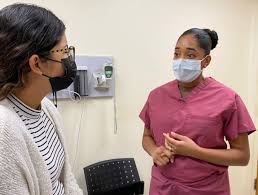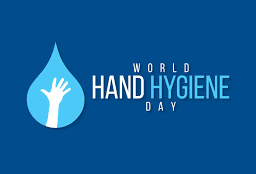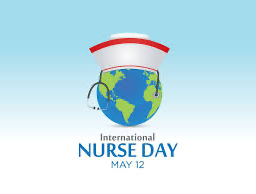
Preventive Care: Essential Steps for a Healthy Future
In the quest for a healthier life, preventive care emerges as a cornerstone. By taking proactive steps to safeguard your well-being, you not only prevent illnesses but also foster a thriving existence. Join us as we explore the transformative power of prioritizing preventive measures in your healthcare routine.

In the pursuit of a fulfilling and vibrant life, maintaining good health is paramount. We often focus on treating illnesses when they arise, but what if we could take proactive steps to prevent them in the first place? That’s where preventive care and screenings come into play. In the hustle and bustle of daily life, it’s easy to put our health on the back burner. However, taking proactive steps to maintain our well-being is crucial for leading a long and fulfilling life. Preventive care and screenings play a vital role in this process, enabling us to catch potential health issues early and take action before they become more significant concerns. In this post, we will dive into the world of preventive care, emphasizing the importance of regular check-ups, vaccinations, and screenings in safeguarding our health and promoting overall well-being. By prioritizing these essential aspects of preventive healthcare, you can pave the way for a healthier, happier, and more resilient future.
The Power of Prevention: The Essence of Preventive Care:
Preventive care encompasses a range of measures designed to keep you healthy and identify potential health risks before they manifest as major problems. Regular check-ups with healthcare professionals, such as primary care physicians, dentists, and optometrists, provide an opportunity to assess your overall health, address concerns, and develop personalized strategies for maintaining well-being. These visits often include discussions about lifestyle choices, risk factors, and the importance of age-appropriate screenings.
Preventive care is the foundation of maintaining optimal health. It involves taking proactive measures to prevent diseases or detect them at early stages when they are most treatable. By prioritizing preventive care, you shift your focus from reactive healthcare to a proactive approach that supports your well-being in the long run.
Regular check-ups:
Routine check-ups with your primary care physician or healthcare provider serve as a valuable opportunity to assess your overall health, discuss any concerns, and receive guidance on preventive measures. These visits may include a review of your medical history, physical examination, and discussions about lifestyle factors, such as diet, exercise, and stress management. By scheduling regular check-ups, you establish a partnership with your healthcare provider to proactively address any potential health issues.
Vaccinations: Shielding Against Preventable Diseases:

Vaccinations are a powerful tool in preventing the spread of infectious diseases and protecting both individual and public health. From childhood immunizations to seasonal flu shots and adult boosters, vaccines help fortify your immune system and reduce the risk of contracting and transmitting various diseases. Explore the importance of staying up to date with recommended vaccinations, debunk common misconceptions, and highlight the positive impact vaccines have had on eradicating or controlling diseases throughout history.
Vaccinations are a vital component of preventive care, offering protection against a range of infectious diseases. Vaccines work by stimulating the immune system to recognize and fight specific pathogens, effectively preventing illness or reducing its severity. Stay up to date with recommended vaccinations for your age group, including vaccines for influenza, pneumonia, hepatitis, measles, mumps, rubella, and human papillomavirus (HPV). By getting vaccinated, you not only protect yourself but also contribute to the overall health of your community.
Screenings: Unveiling Hidden Risks:
Screenings are medical tests or exams that aim to identify potential health conditions in their early stages, even before symptoms may appear. These screenings can vary based on age, gender, and risk factors, but common examples include blood pressure checks, cholesterol level assessments, mammograms, Pap smears, colonoscopies, and prostate cancer screenings. By detecting issues early, screenings allow for timely interventions and treatment, significantly improving outcomes and quality of life. Regular screenings are crucial for detecting potential health issues early, when treatment is often more effective. Screenings can identify risk factors, monitor existing conditions, and screen for common diseases. The specific screenings recommended may vary based on age, gender, family history, and individual risk factors. Consult with your healthcare provider to determine which screenings are appropriate for you.
Benefits of Preventive Care and Screenings:
Beyond catching potential health problems early, preventive care can help manage chronic conditions more effectively, promote healthy aging, and reduce healthcare costs in the long run. Preventive measures empower individuals to take charge of their health, make informed decisions, and engage in lifestyle modifications that contribute to overall well-being.

Overcoming Barriers to Preventive Care:
Acknowledge that accessing preventive care can sometimes be challenging due to various barriers, including financial constraints, lack of awareness, or fear. Practical tips and resources to overcome these barriers, include exploring community clinics, utilizing health insurance benefits, and seeking out low-cost or free screenings provided by local health departments or nonprofit organizations. It is important to maintain open communication with healthcare providers to address concerns and find solutions that work for individual circumstances.
Creating a Preventive Care Plan:
Developing a personalized preventive care plan is key to maintaining optimal health. Start by discussing your medical history, lifestyle factors, and concerns with your healthcare provider. Together, you can create a plan that includes regular check-ups, recommended vaccinations, and appropriate screenings based on your individual needs. Additionally, embrace healthy lifestyle habits, such as a nutritious diet, regular exercise, stress management techniques, and adequate sleep, to further support your preventive care efforts.

Cultivating a Preventive Mindset:
You can adopt a preventive mindset and take ownership of your health. Prevention is a lifelong commitment that involves making healthy choices every day, such as maintaining a balanced diet, engaging in regular physical activity, managing stress levels, and avoiding tobacco and excessive alcohol consumption. You must become advocates for your own health and to motivate others around you to prioritize preventive care.
Preventive care and screenings are invaluable tools in maintaining optimal health and well-being. By embracing regular check-ups, staying up to date with vaccinations, and following recommended screenings, individuals can catch potential health issues early, improve treatment outcomes, and enhance. Remember, prevention is not only about avoiding disease but also about nurturing your overall well-being and enjoying a fulfilling life. Schedule that check-up, discuss vaccinations with your healthcare provider, and be proactive about screenings. Together, let’s embrace the power of preventive care and pave the way to a thriving, resilient, and healthy life.
Disclaimer: The information provided in this content is for general informational purposes only. It is not intended as medical or healthcare advice, diagnosis, or treatment. Always seek the advice of a qualified healthcare professional with any questions you may have regarding a medical condition or healthcare decisions.
















